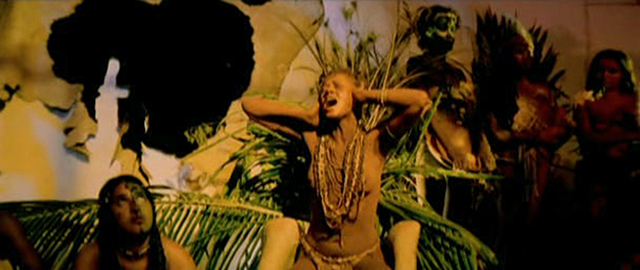Catholic rituals and Afro-Indian gods, rural mysticism and revolutionary politics, Brahms and Villa-Lobos: this last film by Glauber Rocha, angel-demon of the Brazilian 'Cinema novo', defies every attempt at unequivocal classification or definition. “It’s not to be told, only to be seen”, he said. A torrential, hallucinatory anti-symphony, a terrifying cry of desperation, a destruction in progress. “He hit himself against the impossible, the impossibility of being a great filmmaker of the Third World, a great black filmmaker. The Age of the Earth is the film of the Third World, there is no other. The others are films that join other films. The Age of the Earth is a great impossibility, a passage through world and time, a discovery of America on the opposite lane, a black Battleship Potemkin, or rather, it informs, full of gestures and rhythm, an extreme anti-classic – a spitting of blood in the face of the current cinema, dominated by sweetness.” (Pascal Bonitzer)
